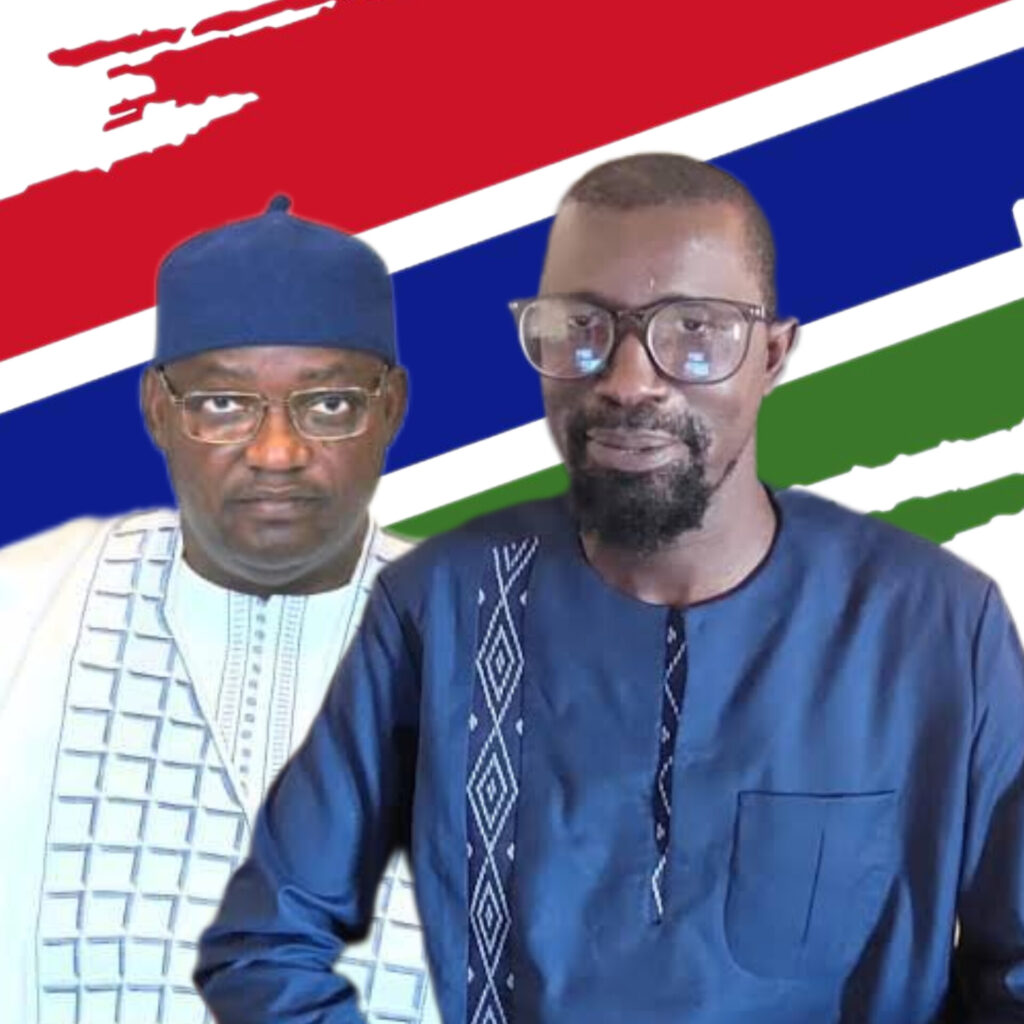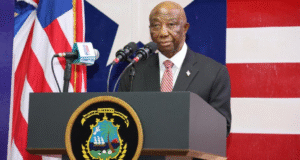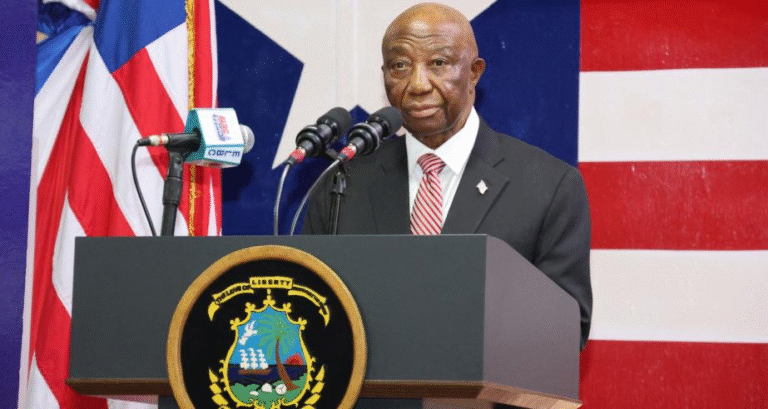
By Fidel F.
As The Gambia heads toward crucial elections, President Adama Barrow finds himself at the center of a storm over his controversial attempt to remove Auditor General Modou Ceesay from office. In a move widely seen as politically calculated, Barrow reassigned Ceesay to the Ministry of Industry—a post the Auditor General briefly accepted but later rejected. The fallout has not only unsettled the political establishment but also raised profound questions about governance, legality, and the independence of state institutions.
The heart of the controversy lies in the independence of the National Audit Office (NAO). Created under the National Audit Office Act of 2015, the NAO was deliberately insulated from political control to safeguard the public purse. The Act strictly regulates how the Auditor General may be removed: incapacity must be confirmed by a medical board, or misbehavior and incompetence must be proven by a tribunal comprising senior officials, including a High Court judge and a chartered accountant. None of these procedures, critics argue, were followed.
The Edward Francis Small Centre for Rights and Justice (EFSCRJ) condemned the President’s decision as “a blatant violation of the law” and demanded Ceesay’s reinstatement. Their warning was stark: undermining the NAO threatens transparency, erodes trust, and compromises democratic governance.
The saga deepened on September 15th, when Ceesay, backed by his staff, organized a press conference to assert his position. Before the event could begin, police arrived to arrest him—an act that shocked the public and reinforced the perception of executive overreach.
This has fueled speculation. Is Barrow deliberately turning Ceesay into a political figure, one whose candidacy could fracture the opposition and divide the UDP vote? Or is this a personal feud rooted in mistrust and rivalry?
Some whisper of skeletons in Ceesay’s closet—fears that a successor might unearth troubling findings. Others wonder if the Auditor General was preparing to release a damning report exposing corruption and looting at the highest levels.Whatever the truth, the drama has elevated Ceesay from a bureaucrat to a symbol of institutional independence, sparking public sympathy and solidarity.
With elections looming, the timing of Barrow’s move could hardly be riskier. Rather than neutralizing a potential critic, he may have galvanized anti-Barrow forces—a coalition of opposition parties, civil society activists, and disenchanted citizens who view this as an assault on accountability.In a fragile democracy still healing from the Yahya Jammeh era, executive interference with independent institutions revives painful memories of authoritarian overreach. The optics, both at home and abroad, are perilous for Barrow.






